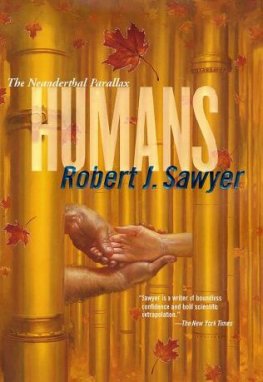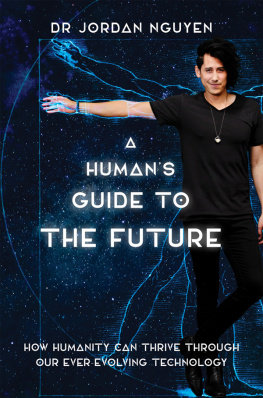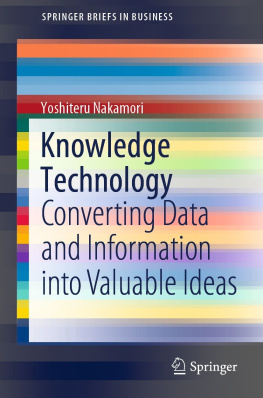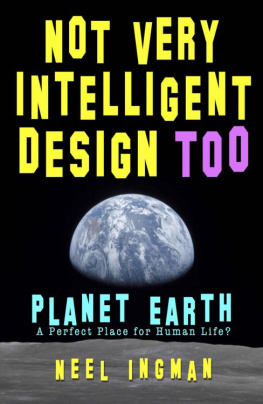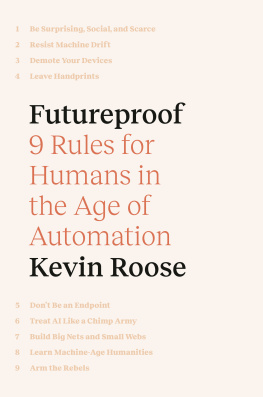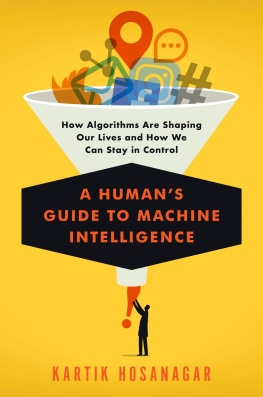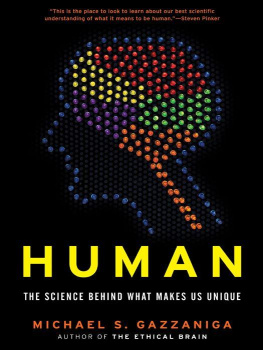Ellen Broad is an independent consultant and expert in data sharing, open data and AI ethics. She has worked in technology policy and implementation in global roles, including as head of policy for Open Data Institute and as manager of digital projects and policy for the International Federation of Library Associations & Institutions. In Australia, she ran the Australian Digital Alliance.
Broad has provided independent advice on data and digital issues to governments, UN bodies and multinational tech companies. She has testified before committees of the European and Australian parliaments, written articles for New Scientist and The Guardian, spoken at SXSW and been a guest of ABC Radio National programs Big Ideas and Future Tense. Ellen designed a board game about data with ODI CEO Jeni Tennison that is currently being played in nineteen countries.
MADE BY
HUMANS
ELLEN BROAD

MELBOURNE UNIVERSITY PRESS
An imprint of Melbourne University Publishing Limited
Level 1, 715 Swanston Street, Carlton, Victoria 3053, Australia
www.mup.com.au

First published 2018
Text Ellen Broad, 2018
Design and typography Melbourne University Publishing Limited, 2018
This book is copyright. Apart from any use permitted under the Copyright Act 1968 and subsequent amendments, no part may be reproduced, stored in a retrieval system or transmitted by any means or process whatsoever without the prior written permission of the publishers.
Every attempt has been made to locate the copyright holders for material quoted in this book. Any person or organisation that may have been overlooked or misattributed may contact the publisher.
Cover design by Nada Backovic
Typeset in 12/15pt Bembo by Cannon Typesetting
Printed in Australia by McPhersons Printing Group

9780522873313 (paperback)
9780522873320 (ebook)
Contents
If you cannot or will not imagine the results of your actions,
theres no way you can act morally or responsibly.
Ursula K Le Guin, 19292018
How we got here
One night in Brisbane, coming off stage after speaking at a public debate about artificial intelligence (AI) and data, a hand tapped me on the shoulder. It belonged to a woman in her early fifties and standing beside her was a very tall, shy teenager.
Excuse me, the woman said. I wanted to introduce you to my daughter. Shes seventeen and starting to plan for university. The seventeen year old and I traded awkward smiles. I knew where this was going. She found your talk very inspiring. I was hoping you could tell her a bit about how you got here. Maybe you have some tips about subjects to study, interests she should be pursuing. The teenager was now looking at me closely. I swallowed nervously.
This wasnt the first time Id heard this question. I get asked it a lot. Sometimes by people who want to break into the tech industry and are looking for tips. Sometimes by taxi drivers, flight attendants, immigration officials, who do a double take when I respond to questions about what I do for a living or where Im off to, because I dont really fit the stereotype of someone working in tech or speaking about AI and they want to make sense of it. And sometimes by old friends and family, people who have known me most of my life, who, amused and a little baffled, ask how I got into tech, as a route to helping them understand why.
I dont have a good answer. The truth is, none of the facts of my background explain how I ended up in this industry. Theres no real correlation between the subjects I pursued in high school, my interests and hobbies, my academic transcripts or the choices I made at university and the career Ive ended up in. Im very, very good at my job, and its a job I love. There just arent a lot of big clues in my history that help explain why Im in it.
I avoided maths and science in high school. I did not like games or computers or gadgets or building things with my hands or puzzle solving. I liked serious books, and movies with subtitles, and being a pretentious indie kid. I was an unexceptional law and arts student, with mediocre results. During the first few years of university I was rarely even on campus. I had a full-time course load, but I was more interested in the three jobs I had off-campus: working behind the counters at Kmart and Video Ezy, and doing mind-numbing data entry at a law firm. See, I was saving up enough money to move to Paris and live a bohemian life. And thats what I did.
For nearly a year I worked in a jazz cafe just behind the Sorbonne, lived off 500 euros a month, stared out at the rooftops of Montmartre from my six-storey walk-up attic and wrote terrible, terrible poetry. When I eventually returned to Australia, I spent the rest of my university years wrestling with existential angst about the future. Id feverishly throw myself at one field, only to worry I was closing myself off to other opportunities, and so I would change course, again.
I volunteered for a creative writing journal. I directed university plays. I helped at a refugee law clinic. I did big corporate law clerkships. I joined a sci-fi club. I started a food and wine blog. I did none of these things for very long, or very well. By the time I finished university Id also been a tutor for an education agency, a waitress, a bar hand, an editorial assistant and a netball umpire. I didnt quit things. I held every job I had for at least three years. I just piled jobs up on top of each other, was very bad at saying no to things and, if Im really honest, liked the feeling of working more than studying. My CV was a strange, seemingly disconnected mess of skills and experience. After university I was turned down for graduate positions with every law firm and government agency that I applied to: twenty-one rejections in total.
The truth is, I got into tech by random, desperate chance.
Without any clear direction to go in, I moved to Canberra following a boy, who would eventually become the man I married, and just started applying for whatever jobs were going. I found myself running the Australian Digital Alliance, a small non-profit specialising in intellectual property (IP) law advocacy, mainly copyright, an old area of law being massively challenged by new digital technologies. It turned out I liked tech. I liked the newness of technology issues, of figuring out how to make old laws fit for a digital world, within which there were no easy answers. I got headhunted to manage digital projects and policy for an international non-government organisation based in the Netherlands. Then I decided I wanted to get more into the technical side of how systems worked, and work alongside more computer engineers and developers, so I moved to the Open Data Institute (ODI) in London.
Beyond data policy, I started dabbling in data standards and data infrastructure. I pestered technical people on the ODI teamJames, Stuart, Sam, Adam, Leigh and my boss, Jenito show me how systems worked, to review tentative, rudimentary pull requests on GitHub (a platform used by developer teams around the world to share and collaborate on software), and to explain technical terms. They were generous and patient. I was slow and bad at everything.
Eventually I decided to go back to university to do a postgraduate degree in computer science and statistics. I couldnt bear the idea of being caught out using technical language or discussing concepts that I didnt fully understand. I liked knowing how things worked. It turned out I did like puzzle solving, of a different kind: language problems. I liked translating complex terms into language non-technical people could understand. At some level I knew that language was my bridge between technical and non-technical audiences. Being able to converse knowledgeably and fluently at a technical level gave me credibility with data scientists and engineers. Being able to accurately, easily pull out the key points that policy and businesspeople needed to make decisions about tech made me very useful.
Next page

